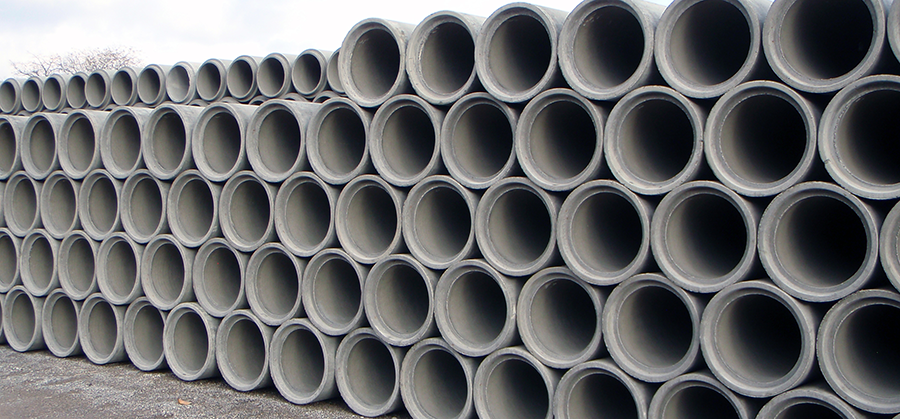Here's what you need to know about TRI Reporting at YOUR concrete plant.
This last year has been a pretty harsh one in terms of TRI Reporting at concrete plants. The USEPA, in part of a multi-year effort, is cracking down on industrial facilities all over the United States, especially those that they think should be conducting TRI Reporting. One industry that's getting hit hard (relatively speaking) is the concrete industry. Precast concrete plants, ready mixed plants, brick, block, and other concrete plants are all under the gun when it comes to TRI Reporting.
Do concrete plants need to do TRI Reporting?
The short answer is yes, most likely.
We've had a fair amount of producers get in touch with us who were looking to stay ahead of enforcement, and learn more about what's entailed with regards to concrete plants & TRI Reporting. A lot of producers are calling us and asking if they need to report and are looking for a yes or no answer.
Unfortunately, this isn't as simple as something like saying 'yes, you need a stormwater permit' since whether or not your concrete plant needs to conduct TRI Reporting can depend on a few variables, many of which aren't easily identifiable until some serious investigation has been done.
Let's go over some of the bigger issues with TRI Reporting at different types of concrete plants, and how they might be impacting your operation.

The danger of not conducting TRI Reporting at a concrete plant.
It's great people are finally starting to take TRI Reporting seriously, but I still run into producers in the concrete industry who don't understand what this reporting entails. Given the fact that the USEPA and 3rd party organizations are ramping up enforcement and slapping producers with fines in the 6, 7, and 8 figure range, the time to take action at your concrete plant is now.
Wait a second, 8 figures? Like $10,000,000+ fines?
Yes.
I've seen larger, multi-state concrete producers receive fines in the multi-million dollar range. The USEPA and 3rd party environmental groups can, and do, fine you for every year you've failed to report at every applicable plant. So let's say you've got 10 plants, and haven't conducted TRI Reporting ever. The USEPA could issue a fine for each facility going back a few years, and you're quickly looking at dozens and dozens of violations, all coupled with hefty monetary fines.
Can you afford to ignore this? The answer for most producers is no. The fine you could be facing is often crippling.
Do you need to conduct TRI Reporting at your concrete plant?
If you're looking into TRI Reporting, these 4 must knows will help you determine whether or not you should take a good, hard look into TRI Reporting.
1) TRI Reporting Triggers at Concrete Plants
If you're operating any sized concrete facility in the United States, and you're open for the majority of the year, you'll likely meet these triggers. When it comes to TRI Reporting at concrete plants, we've found that only the extremely small operations can get by without reporting. For everyone, you should be evaluating whether or not you should be conducting TRI Reporting at your concrete plant.
- Have an applicable NAICS code - Concrete production has an NAICS code which is applicable to TRI Reporting requirements. We cover which NAICS codes need to conduct TRI Reporting in another article, but trust us, if you're making any type of concrete, you're a covered industry.
- 20,000 total working man hours - Figure if you have 10 full time employees you meet this requirement. Conversely, if you have 5 full time employees, and 10 part time drivers working half a week at one facility, and half at another, you'll also meet the requirement. We see this a lot with drivers who cover multiple facilities. Most modest concrete operations we've seen meet this requirement.
- Manufacture, process, or otherwise use a listed TRI chemical in amounts exceeding reporting thresholds - We're seeing a lot of facilities having to report nitrates in admixtures, lead & mercury in cement & SCMs, and occasionally PACs in fuel.
2) Common Chemicals Reported at Concrete Plants
TRI stands for Toxic Release Inventory, and the chemicals you're reporting on are... toxic! Now you might be thinking what's toxic at a concrete plant?! Turns out there could be a lot, but these are what we're seeing as the most common materials that contain toxic chemicals of concern.
Cement & SCMs
It's no secret there's lead and mercury in your cement & SCMs. The cat's out of the bag. The EPA knows it, PCA knows it, NRMCA knows it, it's common knowledge at this point that there's some nasty stuff in cement, despite what your cement salesman tells you. Don't believe us? Call your state or national level trade association, the Portland Cement Association, or better yet, take a baggie of your cement to your local lab and have them analyze it. Trust me, it's in there. When it comes to TRI Reporting at concrete plants, this is the #1 issue by and far.
Concrete Admixtures
Many admixtures have nitrates in them. Just because it's not listed on your SDS doesn't mean it's not there. This can be complicated, and despite being a pain in the butt to figure it out, the ball's in your court. You need to do your homework. Call your admixture company and start asking some questions, contact an expert, or ask your state or national level association for some advice. Again, despite what your salesman or rep tells you, there's some nasty stuff in admixtures that could trigger the need for TRI Reporting.
Fuel Usage
While this isn't as common, some facilities need to report on some nasty chemicals that are found in fuels known as PACs. Don't worry about what that stands for for now, just trust me that if you're burning a lot of fuel, there's a chance you'll need to look into reporting on PACs.
Additional Materials at Concrete Plants
I can't be sure what else you have onsite without doing an inspection, so don't just focus on admixtures, fuel, and cementitious materials. Maybe you have vats of chemicals for some specialized reason. Maybe you use a lot of a material which could contain an unknown chemical. We're seeing companies report on the chemicals found in sand because they use a ton of it during the year. SAND! We can't be sure, but you need to be. Evaluate your site carefully. Ask around. Hire a specialist. Again, you can't afford to screw this up.
3) You need to conduct TRI Reporting at your concrete plant based upon 'releases'.
Just figuring out you need to conduct TRI Reporting at your concrete plant isn't enough. You need to calculate how much of these toxic chemicals you release to the environment. Remember, TRI stands for Toxic RELEASE Inventory. This part is tricky, and usually involves some modeling and calculation, and honestly, I've yet to see anyone get this right on their own. I hate to say this is when you need to hire an expert, but I would compare modeling and calculating releases to doing your company's taxes. It's complex, there's a lot riding on getting it right, and if you screw it up you could be in a world of trouble.
4) TRI Reporting is NOT Tier II Reporting.
I have to say this to someone every year. TRI Reporting and Tier II Reporting is not the same thing. Not even close. One doesn't count for another. Don't think doing one means your covered for the other.
I see a lot of producers neglect to do one or the other and incorrectly state they're covered. You don't want to screw these up. We explain in detail the difference between Tier II Reporting and TRI Reporting so you can rest assure you're conducting the right kind of reporting.

All Concrete Plants Should Look Into TRI Reporting
I strongly advise that all concrete producers, regardless of whether you produce ready mix, precast, pipes, decorate concrete, shotcrete, or anything else, to evaluate your operation and figure out if you need to conduct TRI Reporting at your concrete facility. Think of it like a doctor telling you that you should come in for a check up. Yeah they're doing it because they're going to make money, but they're also doing it because they're concerned about your well being. Much like a doctor, I don't want to see you or your concrete plant suffer.
Contact Concrete Industry Environmental Experts
Are you running a concrete plant and need help? If so, you've come to the right place. RMA has been actively involved in the concrete industry since our founding in 1992, including staff members from RMA serving on numerous boards and committees for state associations, NRMCA, and NPCA. We've been an integral part in developing NRMCA's Green-Star EMS, and were instrumental in the development of the NRMCA Environmental Course, and our Principal Environmental Consultant Doug Ruhlin has taught the course every year since it's inception.
Long story short, we know the ins and outs of the environmental problems concrete plants face better than anyone else. We've been on-site at close to 1,000 different concrete plants across the country, so when we say we've seen it all and done it all, we mean it. We've helped some of the biggest players in the industry on multi-state projects, as well as small mom and pop concrete producers running a handful of trucks. No matter your size, or the type of concrete you produce, we can help.
So if you're having any type of issue at your concrete plant, we'd love to talk and learn how we can help. Even if we can't help, chances are pretty good we know who can help you, and we'd love to get you in touch with the right people to fit your needs
To reach out, feel free to shoot us an email at info@rmagreen.com, click here to contact us, or give us a call anytime at 888-RMA-0230 to learn how we can help your concrete plant deal with environmental regulations.
Additional Concrete Plant TRI Reporting Articles
TRI Reporting heats up for the concrete industry!
TRI Reporting at Concrete Plants - What you need to know!
Do concrete plants need to do TRI Reporting?














